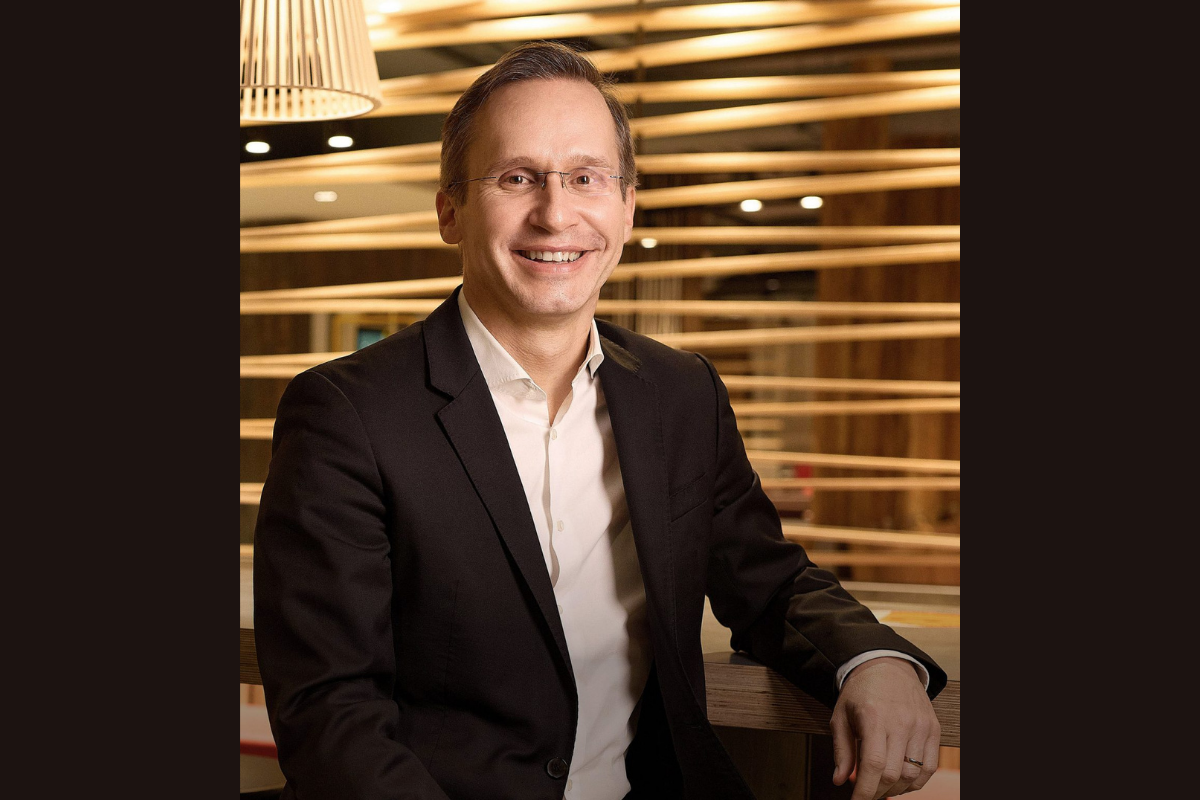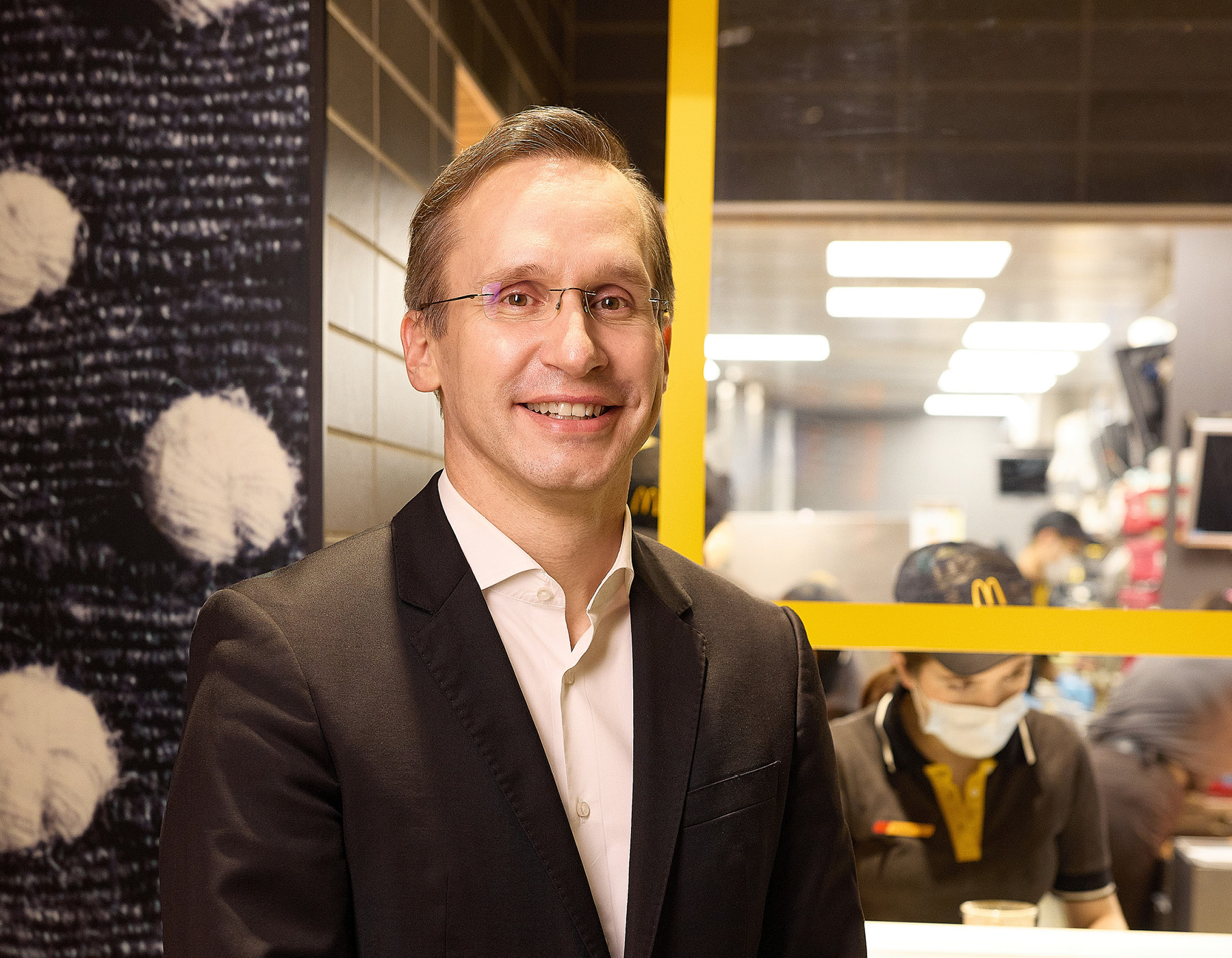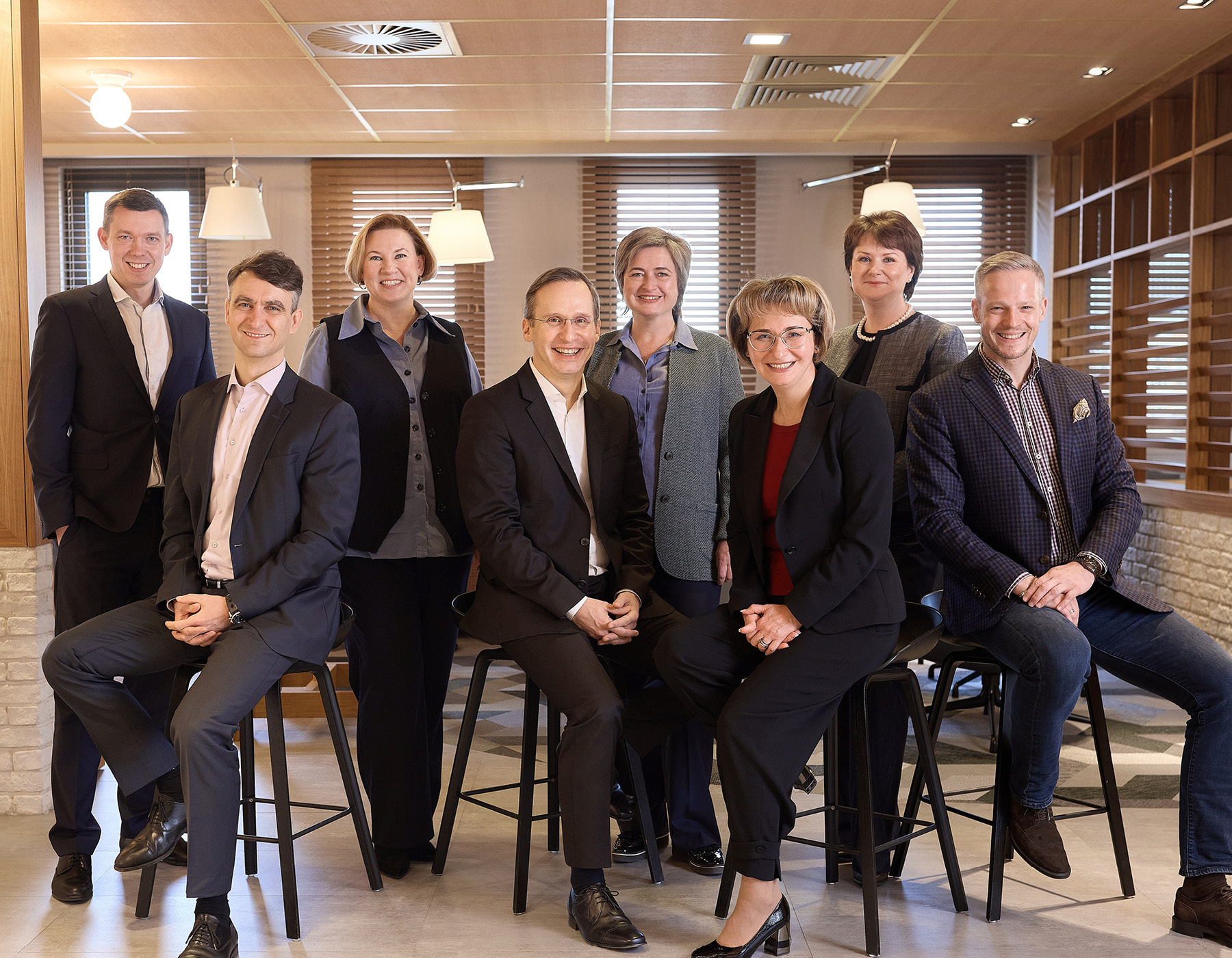The uncertainty of the past 18 months has led to lay-offs, disrupted supply chains and forced businesses to scale back investments. Yet, the impact of COVID-related restrictions has also been felt acutely on effective organisational leadership. Rapid shifts to home working and a lack of casual meetings has changed what good leadership looks like in a post-pandemic business world.

For Marc Carena, Managing Director at McDonald’s Russia, the need to embrace a more empathetic style of leadership is vital. “When you are in a big Zoom call with, let’s say, 20 people, and you can’t really see each person’s face clearly, it makes it challenging to read the room and feel what is going on,” he explains.
In an environment where Zoom meetings or Microsoft Teams calls are commonplace, gaining a true perspective of the staff’s wellbeing can be difficult to achieve. Informal touchpoints and check-ins are now much harder to arrange. However, Marc believes it is important to increase the number of informal calls with his team members, especially his direct reports, to tune in to their opinion and feelings.
“I need to learn from my team now. I want them to tell me how I can support them at work in an environment like this,” he says. “As soon as remote work began, I knew that I needed to do reverse mentoring. Doing so helps to understand how to bring my staff into the discussion and how I could adjust my own behaviour to motivate them and get the best out of my team.”
Technology focus
Like in virtually every other industry, food and beverage companies are increasingly looking to gain from the benefits of digitisation. McDonald’s Russia is working to stay at the forefront of technological innovation and offer its customers and staff alike a smooth experience.
Future growth plans for McDonald’s Russia will focus on the three Ds: delivery, digital and drive-through. “We digitised the consumer journey, which allows for a seamless customer experience,” Marc says. “We have launched a mobile order-and-pay system, which means that you can, for example, pay through our app and go to a restaurant and just sit down at your table and the food will be delivered. It’s fast — you don’t have to wait for your order.
“This system really helped us when a 10-day long lockdown was implemented in Moscow, and we were not allowed to let people inside of the stores to get their orders.”
I would like to shift our employees towards more value-added responsibilities versus just repetitive tasks.
Continuing the shift to digital is paying dividends for the Russian restaurant chain. In just over 18 months since launching, there have been 25 million downloads of the McDonald’s app – the core of the fast-food chain’s digital ecosystem. “Even corporate volunteering projects were digitised with the help of the app,” Marc says.
“Thanks to this, the nationwide volunteer program ‘My EcoDay’ was supported by more than 4,000 volunteers who engaged in environmental, social and other activities from Kaliningrad to Vladivostok. It was a completely new approach among all McDonald’s markets.”
Another way in which Marc believes technology can improve the customer experience is with the use of advanced analytics to make data-driven decisions and gain deeper insights on market trends, customer preferences and key business activities.
Employees, too, can benefit from cutting-edge innovation. “We think advanced analytics are the next big thing for us, and they will improve the employee experience as well,” he says.

“Today, there are lots of repetitive tasks that employees have to do, but they could be done automatically. I would like to shift our employees towards more value-added responsibilities versus just repetitive tasks.”
To empower these changes, Marc has introduced a transformation office at McDonald’s Russia. He’s also restructured the IT framework to address these new digital challenges.
Valuable relationships
Maintaining close supplier relationships is important for a company of any size. But for major enterprises such as McDonald’s Russia, which directly employs more than 65,000 people and around 100,000 more indirectly through its suppliers, these relationships are critical to its success.
Early on in the pandemic, McDonald’s Russia understood the value of its suppliers and sought out ways to help them during this difficult time.

We heavily supported our partners, especially during the lockdown when many restaurants were closed.
“We heavily supported our partners, especially during the lockdown when many restaurants were closed. Some of our suppliers saw their revenue fall by up to 90 per cent, and we stepped in, providing financial assistance to ensure their survival,” Marc says.
Now, as supply chain issues continue to impact the daily operations of companies in every industry, Marc says its partners remember the help they received, and are now willing to repay the favour. “Our suppliers will tell you immediately that we are considered a priority customer. Thanks to our relationship, they tend to prioritise the needs of McDonald’s over anyone else,” he says.
During shortages of truck drivers, couriers and other services, McDonald’s has an advantage over competitors because of the effort it made to build up genuine partnerships, Marc points out. “Now, as the pandemic is continuing and there is a supply crisis, we can see that suppliers are clearly supporting us during these difficult times,” he says.
“This is the best proof to show how important long-term business relationships are. Because suppliers who are focused on long-term and sustainable business practices will remember what you did for them.”
Staff Support
During the height of the pandemic, staff working through the uncertain period were given a special bonus to say “thank you” and help motivate them when times got tough. According to Marc, investing in people has meant that not only has their experience of working at McDonald’s improved, but it has also distanced the company from its competitors in terms of employer reputation.
“Many restaurants closed down, forcing their staff to move on to other jobs. We behaved counter-cyclically, and our actions helped us to create stronger employee loyalty. It also reinforced the image of McDonald’s Russia as a reliable and responsible company to work for,” Marc says.


